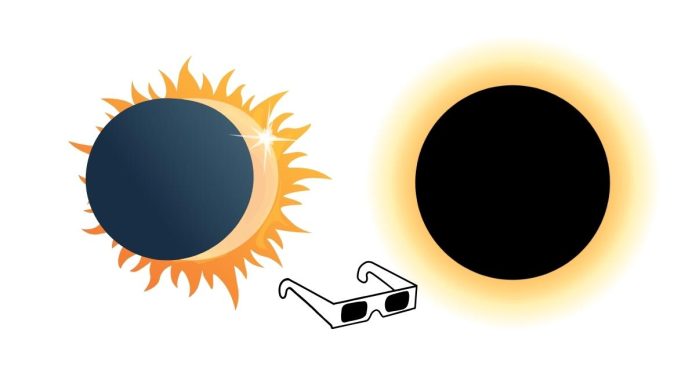Looking directly at a solar eclipse is dangerous because the sun’s intense light and radiation can damage your eyes, even when most of the sun is obscured by the moon. Here’s why:
1. Retinal Burns (Solar Retinopathy):
The sun’s ultraviolet (UV) rays can burn the retina, the light-sensitive layer at the back of your eye. This damage can happen quickly and may lead to permanent vision loss or blind spots.
2. Lack of Pain Receptors in Retina:
Your retina doesn’t have pain receptors, so you won’t feel the damage happening. By the time you notice vision problems, it may be too late to reverse the damage.
3. Pupil Dilation During Eclipses:
During an eclipse, the reduced sunlight causes your pupils to dilate, allowing more UV light to enter the eye. When the sun reappears from behind the moon, even briefly, this sudden exposure can cause immediate damage.
4. Infrared Radiation (Heat Damage):
The sun also emits infrared radiation, which can cause thermal damage to the retina, adding to the risk of injury.



